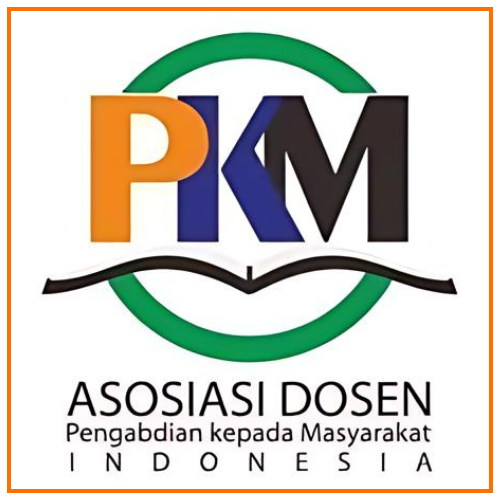Feedback Mechanisms of DepEd English Teachers in Modular Distance Learning: A Case Study
Abstract
Keywords: Feedback Practices; modular learning; teachers’ experiences and method; error correction; and positive feedback.
Full Text:
PDFReferences
Acala, M. & Castroverde, F. (2021). Modular distance learning modality: Challenges of teachers in teaching amid the Covid-19 pandemic. International Journal of Research Studies in Education, 10(8). https://doi.org/10.5861/ijrse.2021.602.
Agustin, J. (2022). Excavating Historical Truth: An Archival Study on the United States-Philippine Economic Relations. European Journal of Literature, Language and Linguistics Studies, 6(1), 108-116. https://10.46827/ejlll.v6i1.350.
Agustin, J. (2022). Symbolic representation of farm in Chinua Achebe’s Things Fall Apart. International Journal of Research Publications, 99(1), 46-51. https://10.47119/IJRP100991420223080.
Allo, M. (2020). Is online learning good in the midst of COVID-19 pandemic? The case of EFL learners. Jurnal Sinestesia, 10 (1), pp. 1-10. ISSN: 2089-2128. https://www.researchgate.net/publication/340815846_Is_the_online_learning_good_in_the_midst_of_Covid-19_Pandemic_The_case_of_EFL_learners.
Asbari, M. et al. (2020). Impact of the COVID-19 Pandemic on Online Home Learning: An Explorative Study of Primary Schools in Indonesia. International Journal of Advanced Science and Technology, 29 (5), pp. 4809-4818. ISSN: 205-4238 IJAST. https://www.researchgate.net/publication/341194197_ Impact_of_the_COVID19_Pandemic_on_Online+_Home_Learning_An_Explorative_Study_of_Primary_Schools_in_Indonesia.
Bernardo, J. (2020, July 30). Modular Learning most preferred parents: DepEd. ABS-CBN News. https://news.abs-cbn.com/news/07/30/20/modular-learning-most-preferred-by-parents-deped.
Braun, V. & Clarke, V. (2006) Using thematic analysis in psychology. Qualitative Research in Psychology, 3 (2). pp. 77-101. DOI: 10.1191/1478088706qp063. https://www.researchgate.net/publication/235356393.
Carcueva, C. (2018). Corrective Feedback: Probing the Preferences of ESL Learners. Teaching and Learning English: Current Trends, Issues, & Practices. https://proceeding.uniku.ac.id/index.php/conelt/article/view/106/101.
Chakraborty, M. & Nafukho, M. (2014). Strengthening student engagement: What do students want in online courses? European Journal of Training and Development, 38 (9), pp. 782-802. DOI: 10.1108/EJTD-11-2013-0123. https://www.researchgate.net/publication/268520725_Strengthening_student_engagement_What_do_students_want_in_online_courses.
Cherukara, J. & Markose, S. (2020). Challenges of Face-To-Face (F2f) Vs. Face-To-Screen (F2s) Teaching-Learning in The Perspective of Indian Undergraduate Students. International Research Journal of Modernization in Engineering Technology and Science, 2 (9), pp. 1781–1794. https://www.researchgate.net/publication/344495174.
Creswell, J. (2009). Research Design Qualitative, Quantitative, and Mixed Methods Approaches (3rd ed.). SAGE Publications Inc.
Creswell, J. (2012). Planning, Conducting, and Evaluating Quantitative and Qualitative Research (4th ed.). Pearson Education Inc.
Dangle, Y. & Sumaoang, J. (2020). The Implementation of Modular Distance Learning in the Philippine Secondary Public Schools. International Conference in Advanced Research in Teaching and Education. https://www.dpublication.com/wp-content/uploads/2020/11/27-427.pdf.
Dewi, Y. N., Zaim, M., & Rozimela, Y. (2022). Interactive learning using e-learning module in learning English for senior high school: A review of related articles. JELITA: Journal of Education, Language Innovation, and Applied Linguistics, 1(2), 125-134.
DepEd. (2020). Adoption of the Basic Education Learning Continuity Plan for School Year 2020-2021. Retrieved from https://www.deped.gov.ph/wp-content/uploads/2020/06/DO_s2020_012.pdf.
DepEd. (2020). The Basic Education Learning Continuity Plan in the Time of COVID-19. Retrieved from https://www.deped.gov.ph/wp-content/uploads/2020/07/DepEd_LCP_July3.pdf.
Fachriansyah, R. (2020, May 3). Remote learning hampered by lack of student-teacher interaction, KPAI survey finds. The Jakarta Post. Retrieved from https://www.thejakartapost.com/news/2020/05/03/remote-learning-hampered-by-lack-of-student-teacher-interaction-kpai-survey-finds.html.
Gao, L.X., & Zhang, L.J. (2020). Teacher Learning in Difficult Times: Examining Foreign Language Teachers’ Cognitions About Online Teaching to Tide Over COVID-19. Frontiers in Psychology. DOI: 10.3389/fpsyg.2020.549653. https://www.frontiersin.org/articles /10.3389 /fpsyg.20 20.5496 53/full.
Gonzalez, E.E. (2015). A Modular Approach Utilizing Decision Tree in Teaching Integration Techniques in Calculus”. Asia Pacific Journal of Multidisciplinary Research. 3 (3), pp. 52-58. http://www.apjmr.com/wp-content/uploads/2015/07/APJMR-2015-3-3-009-A-Modular-Approach-Utilizing-Decision-Tree-in-Teaching.pdf.
Labrado, M. G. et al. (2020). Initial Implementation of Printed Modular Distance Learning in the City of Naga-Cebu During Covid-19 Pandemic. International Journal of Current Research, 12 (10), pp. 14397–14402. DOI: https://doi.org/10.24941/ijcr.39921.10.2020.
Nicol, D. J., & Macfarlane‐Dick, D. (2006). Formative assessment and self‐regulated learning: a model and seven principles of good feedback practice. Studies in Higher Education, 31(2), pp. 199–218. https://doi.org/10.1080/ 03075070600572090.
Nowell, L. et al. (2017). Thematic Analysis: Striving to Meet the Trustworthiness Criteria. International Journal of Qualitative Methods, 16, pp. 1-13. DOI: 10.1177/1609406917733847.
Oranggaga, Saliha Dicasaran. (2022). Challenges and Prospects in Teaching Grammar using the Modular Distance Learning in Marawi City, Philippines. International Journal of Linguistics Studies, 2 (1), pp. 40–44. https://doi.org/10.32996/ijls.2022.2.1.5.
Orsmond, P., & Merry, S. (2011). Feedback Alignment: Effective and Ineffective Links Between Tutors’ and Students’ Understanding of Coursework Feedback. Assessment &Amp; Evaluation in Higher Education, 36 (2), pp. 125–136. https://doi.org/10.1080/02602930903201651.
Pratama, A. H., & Dewi, N. S. N. (2022). Demotivated Students during Online English Learning in Covid-19 Pandemic: Voices from Indonesian Students. JELITA: Journal of Education, Language Innovation, and Applied Linguistics, 1(2), 79-93.
Santiana, S., Silvani, D., & Ruslan, R. (2021). Optimizing LMS CANVAS for interactive online learning perceived by the students. Journal of English Education and Teaching, 5(4), 529-543.
Thohir, L. (2017). Motivation in a Foreign Language Teaching and Learning. Journal for Language and Foreign Language Learning, 6 (1), pp. 20-29. http://dx.doi.org/10.21580/vjv6i11580.
Yin, R. (2003). Case Study Research Design and Methods (3rd ed.). SAGE Publications, Inc.
Zhang, L., & Zheng, Y. (2018). Feedback as an assessment for learning tool: How useful can it be? Assessment &Amp; Evaluation in Higher Education, 43 (7), pp. 1120–1132. https://doi.org/10.1080/02602938.2018.1434481.
DOI: https://doi.org/10.37058/jelita.v3i1.6449
Refbacks
- There are currently no refbacks.








Journal of Education, Language Innovation, and Applied Linguistics
Lembaga Penelitian, Pengabdian Kepada Masyarakat dan Penjaminan Mutu Pendidikan (LP2M-PMP) Universitas Siliwangi
Jalan Siliwangi Number 24, Kota Tasikmalaya - 46115
West Java, Indonesia










